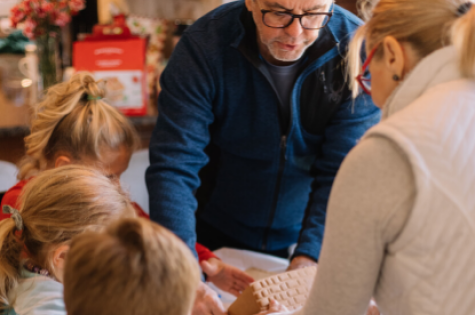Dealing with dementia is challenging for loved ones, including children. As an adult, a natural reaction is to want to protect a child from the harsh realities of dementia. However, it is ever more so important to help kids understand what is happening.
Reassurance will be necessary, followed by discussions that encourage children to ask questions and portray concerns about the disease.
It is important that the child understands that dementia is not curable. However, there are ways that the child can help the affected person feel loved.
Here are some ways to help kids understand dementia better:
- Answer their questions with simplicity and honesty. A simple “Grandma is ill and finds it hard to remember things.” is a step forward.
- Let them know that feeling sad, angry, or frustrated about dementia is normal.
- Comfort them as much as you can. At this stage, they are probably feeling very upset while learning how to cope with dementia. Hugs, positive words of encouragement will help here.
- Reassure them by letting them know that what they’re doing and how they are managing the situation is good.
- Remind them that it is no one’s fault that the loved one has dementia. Young children may think the worst and assume they did something that caused it.
- Talk about their concerns and feelings. Be observant about any changes in behaviour as children may not necessarily communicate well with words, but show it through action instead.
Teenagers may find it frustrating to deal with someone with dementia. In situations where a teenager is starting to be upset and angry, thus not wanting to spend as much time around the person with dementia, do not force them to.
A book or learning aid can help children understand dementia at their own pace. A book like “Grandma’s Box of Memories: Helping Grandma to Remember” will help children through the journey of coping with dementia. In the story, a young girl experiences her Grandma fall victim to dementia. Here, she talks with her dad to find ways to help her grandma. The result is to create a box of personal items that Grandma would find relevant to each family member.
Ways to spend time alone and together
The importance of helping kids understand dementia is to realise that they can still talk with a person with dementia - that it is still possible to enjoy activities together.
Engaging in fun activities together can help both the child and the person with dementia. Here are some ideas of things to do:
- Simple arts and crafts
- Listen to music together or sing
- Look through memorable photos together
- Read stories out loud
What to do if the child lives in the same house as the person with dementia
As much as it is important to help take care of the person with dementia, you should place priority in ensuring that your child grows and develops as they should.
Do not expect them to help watch over the person, and always make sure that the child has time to pursue their interests and hobbies. Activities include playing with friends, doing homework, participating in school activities, and so on.
While there is a lot on your plate, you need to always ensure that your child does not feel neglected by you, and that you are still spending quality time with them.
Looking for the right aged care for a person with dementia
It may be that your circumstances will require some help with managing a person with dementia. Know that there are many support services available to you, such as personalised in-home care services.
That way, both you and your kids can get the much-needed break of having to take care of a person with dementia.








 Agree (0)
Agree (0) Disagree (
Disagree (









__small.png)










